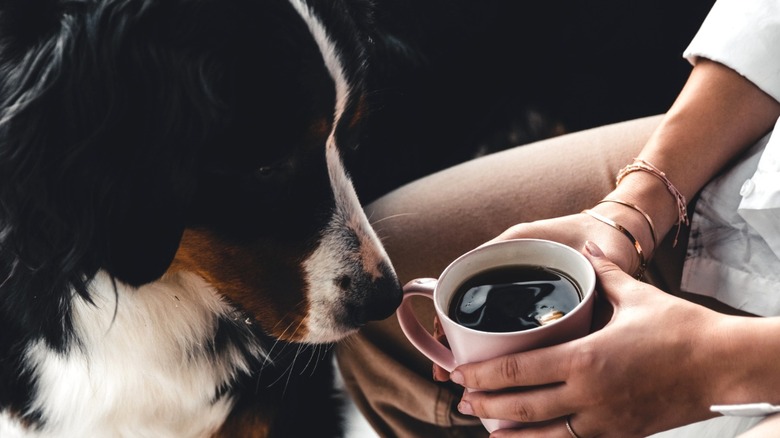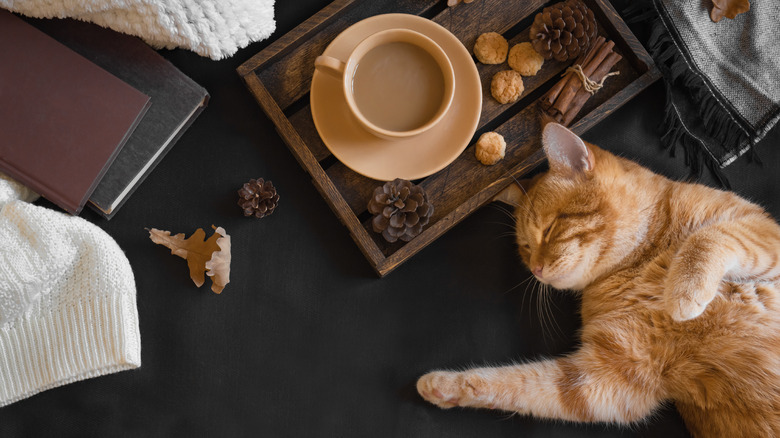How Dangerous Is It If Your Pets Drink Coffee?
Unlike (most) humans, animals don't need caffeine to carry out their day-to-day activities. We know, it must be nice, right? While coffee is typically the first thing that pops into people's minds when they hear the word "caffeine," VCA Animal Hospital points out that there are other sources of caffeine that we may not think about, but could be life-threatening to our house pets. A few caffeine-infused items you may have lying around are soda, energy or sports drinks, diet pills, over the counter pain medication, some candies, and even coffee grounds.
Aside from coffee and soda, chocolate is one of the more well-known caffeine stimulants, which is probably on the top of your "do not feed" pet list alongside grapes, garlic, onions, and apple seeds (via The Humane Society). In terms of chocolate, this goes for all chocolate flavored items like ice creams, candies, liqueurs, and snacks. Digesting any form or amount of caffeine can be very, very dangerous to your cat or dog's health, which is why prevention and early treatment is key.
How do I know if my pet has had caffeine?
As mentioned above, prevention is the first course of action. If you spilled a caffeinated drink or saw that you dropped a chocolate covered snack, clean it up before your pet can get to it. However, if your pet beats you to it or inhales something without your knowledge, you'll need to pay attention to caffeine toxicity symptoms: increased heart rate, hyperactivity, restlessness, increased blood pressure, loss of muscle control, and sometimes tremors or seizures (via VCA Animal Hospital). Pets are smart and will often try to communicate when something is wrong. For example, they may vomit, have diarrhea, or have to urinate frequently. The hospital warns that your pet could start exhibiting symptoms as early as 30 minutes after digestion.
Similar to you and me, caffeine can affect pets differently. Generally speaking, smaller, older pets have a harder time fighting off the toxicity because of their age, size, weight, and health. It also depends on how much caffeine your pet ate. If you believe your pet has been in contact with caffeine, do not hesitate to call the 24/7 animal poison control center at 1-800-213-6680 or visit your local emergency animal hospital. Remember: the earlier, the better.

